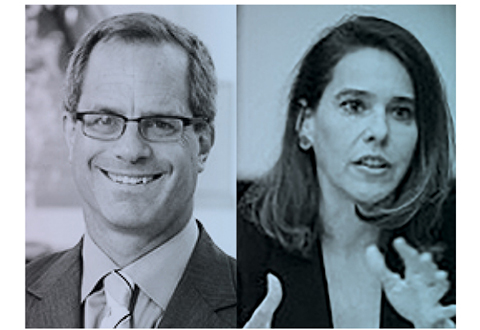Peter Swire, a Professor of Law and Ethics in the Scheller College of Business and Annie Antón, Ics 90, MS Ics 92, PhD CS 97, a Professor in the School of Interactive Computing

The third amendment to the U.S. Constitution prohibits the quartering of soldiers in private homes, and it’s the favorite amendment of Peter Swire, a professor of law and ethics in the Scheller College of Business.
“Having a sergeant in your living room is a big invasion of privacy, and it was something King George did before the American Revolution,” he says. “It just illustrates that in each new generation, there are new ethical privacy issues.”
Today, our privacy concerns have more to do with the vast amounts of our personal data that are circulating, thanks to new technologies, from cell phones that track your location to social media platforms that track your social graph.
But who should have access to the data, and what should they be allowed to do with it? These are questions our society is currently grappling with, and Swire explores them in Privacy, Technology, Policy and Law, a course he co-teaches with Annie Antón, ICS 90, MS ICS 92, PhD CS 97, a professor in the School of Interactive Computing.
Antón’s research focuses on privacy from a software development perspective: How do we design systems that contribute to society, are trustworthy, respect privacy, and comply with the law? It’s not an easy feat, but experience has taught Antón that systems can be all those things when software engineers and lawyers work together.
“In our class, it takes both Prof. Swire and me to answer these questions,” Antón says. “And this whole field requires both kinds of people in the room to build something that works.”
Whether it’s soldiers in living rooms, cell phones, or facial recognition, each new privacy issue has required our society to learn to adapt. Tech’s newly created School of Cybersecurity and Privacy aims to address these larger issues in privacy.
In terms of laws, individual states are stepping up with their own. “We seem to be at a turning point, and the American political process is in the middle of big changes when it comes to privacy rules,” Swire says.

